The extreme weather this year has stirred up some turtle trouble and kept researchers working with endangered spiny softshell turtles in the Thames watershed on high alert.

A local species at risk biologist says April and May’s abnormally cool weather caused a two-week delay in nesting, then summer’s heat and storms presented challenges for recovery.
Scott Gillingwater of the Upper Thames River Conservation Authority (UTRCA) says climate change is to blame.
But luckily, researchers’ intervention is working.
The spiny softshell turtles are labelled as endangered provincially as well as federally, and only a small number of hatchling turtles reach adulthood, making it critical for biologists to protect the eggs.

Get daily National news
Gillingwater estimates roughly 500-600 adults within the city. He tells 980 CFPL that the team has collected around 300 nests, which could ultimately translate to 4000-5000 hatchlings.
In previous years, studies along the Thames River revealed close to zero turtle egg survival and an aging adult population. Recent research shows that protection efforts are having a local impact.
The UTRCA says since they began protecting eggs in the 1990s, the local population “has shown increases in the number of turtles of all age classes, increasing numbers of nests laid, and an increase in their range along the Thames River.”
According to the UTRCA, threats to the spiny softshell turtle include:
– Loss of habitat
– Collection for the pet and food trade
– Getting caught on fish hooks
– Non-native plant species overtaking nest sites
– Climate change-related extreme weather events
The UTRCA welcomes financial support with the Spiny Softshell Recovery Project online.
_848x480_1571155011572.jpg?w=1040&quality=70&strip=all)




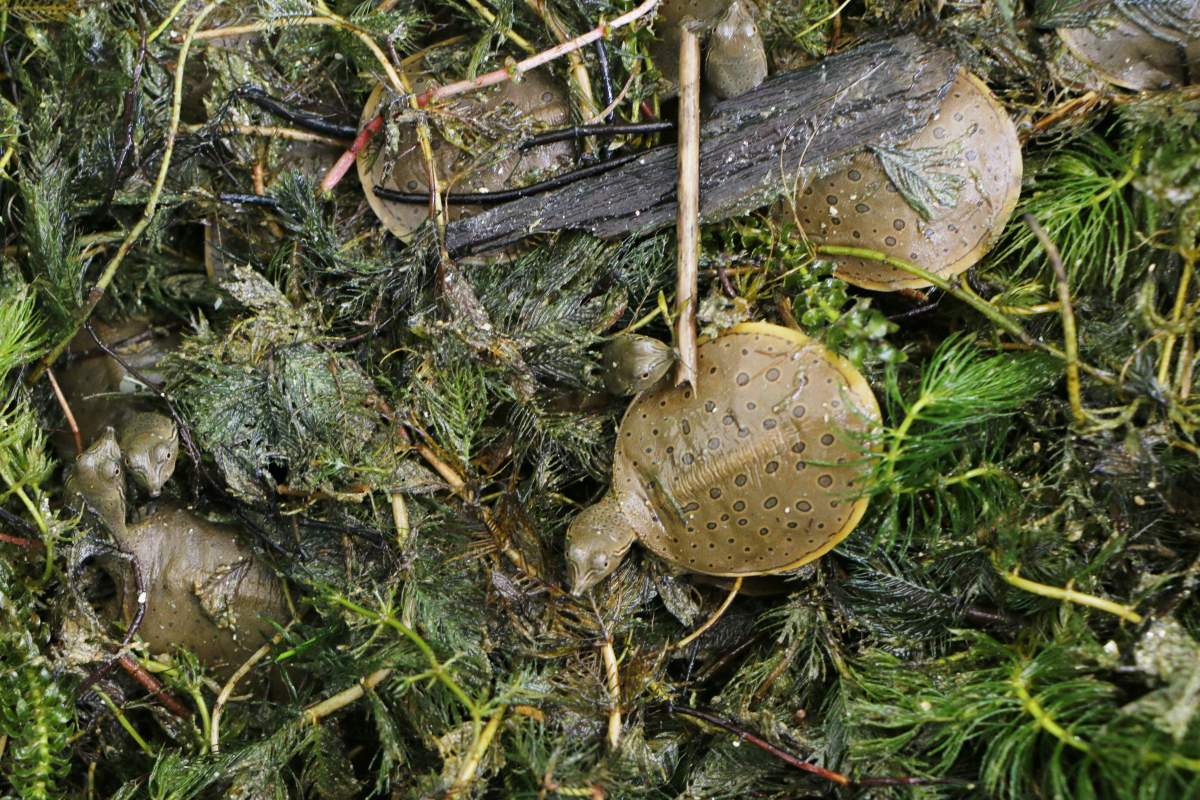

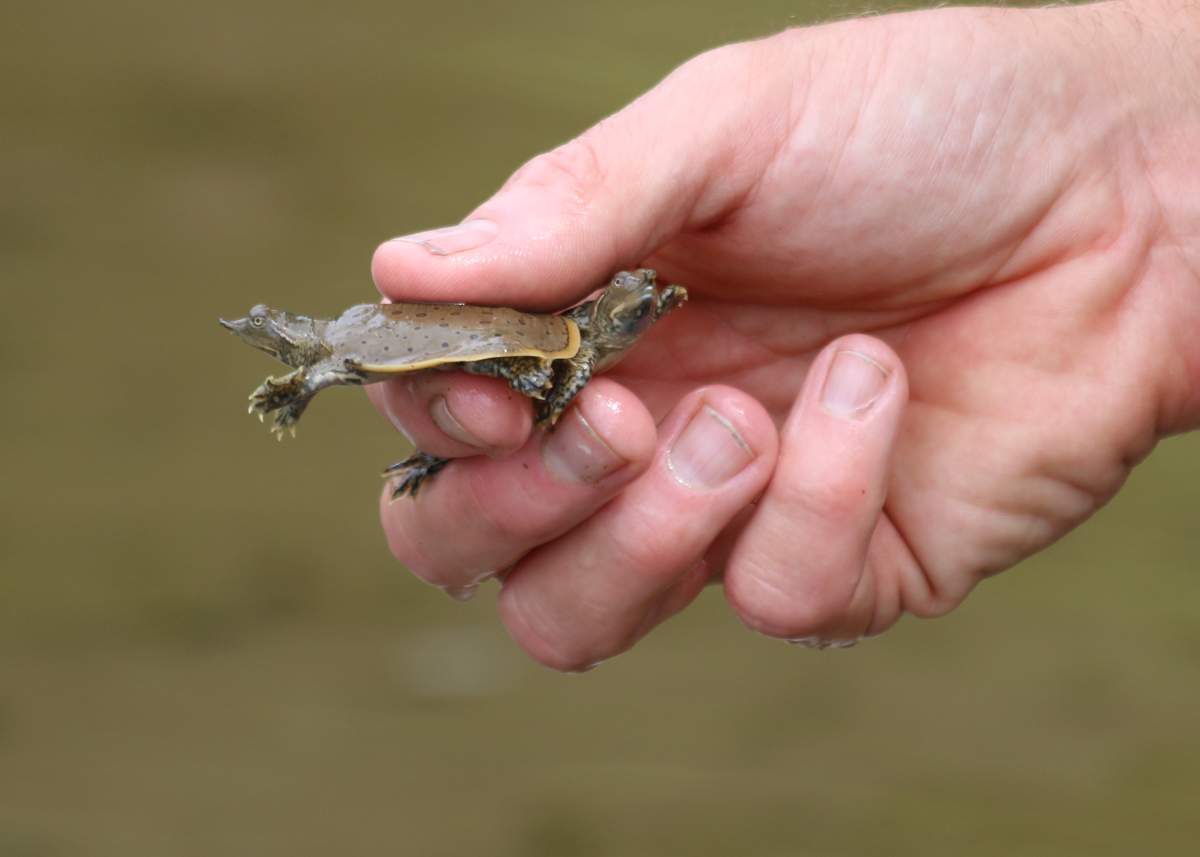

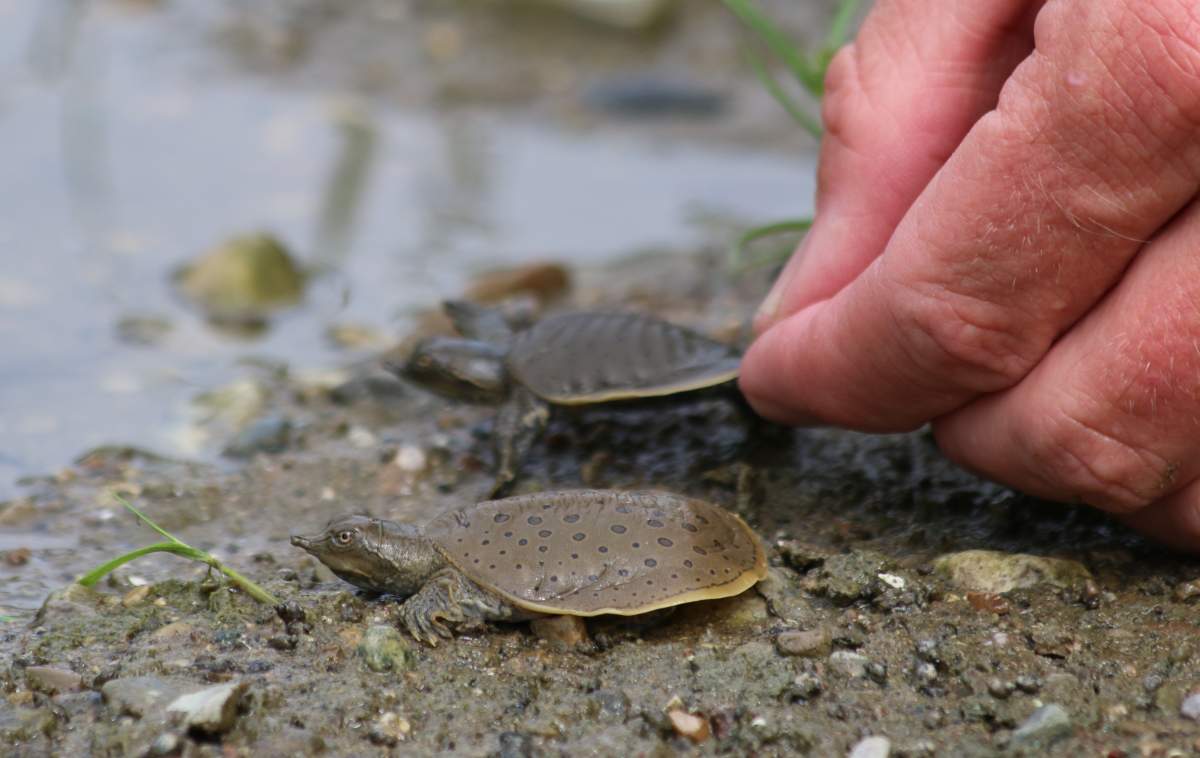

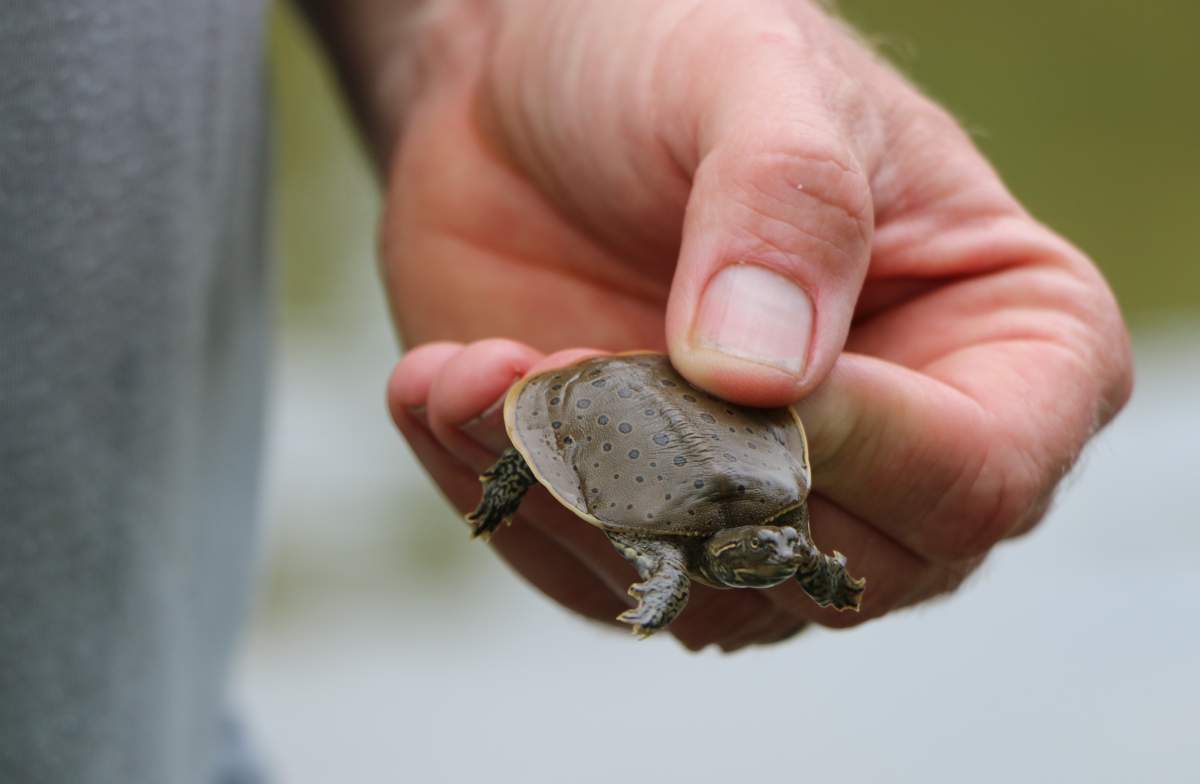

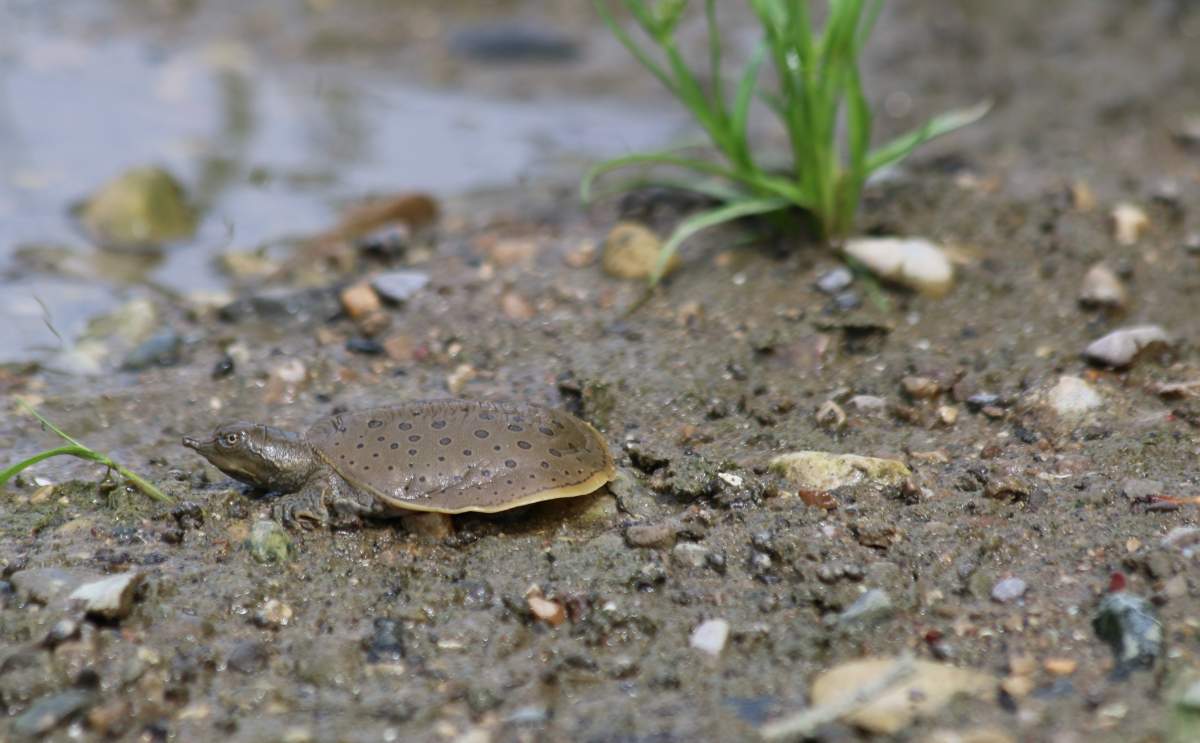

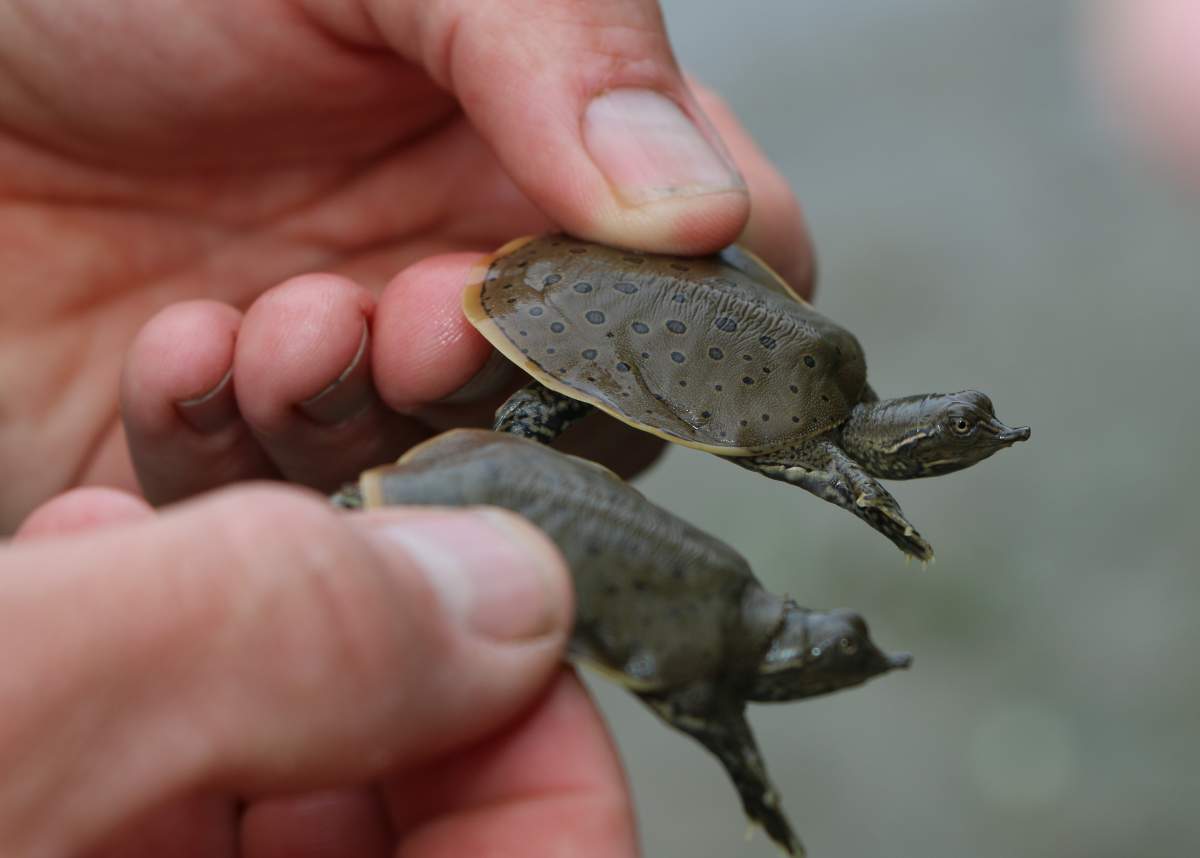


Comments